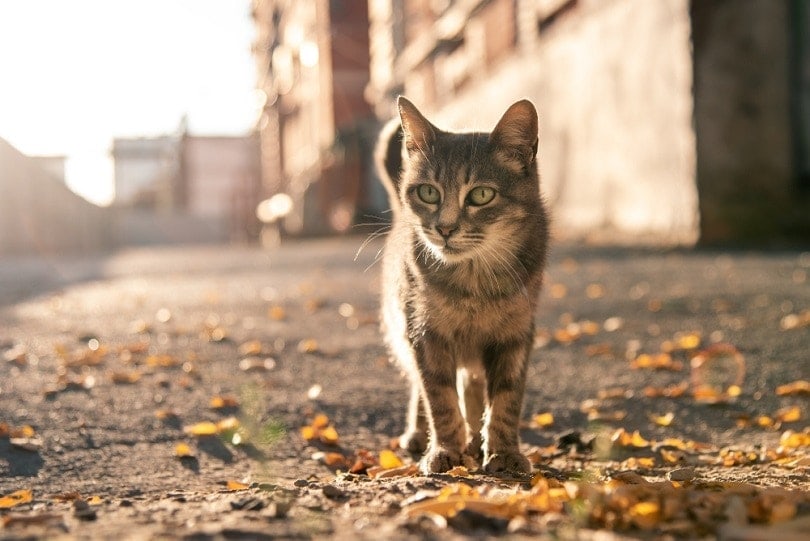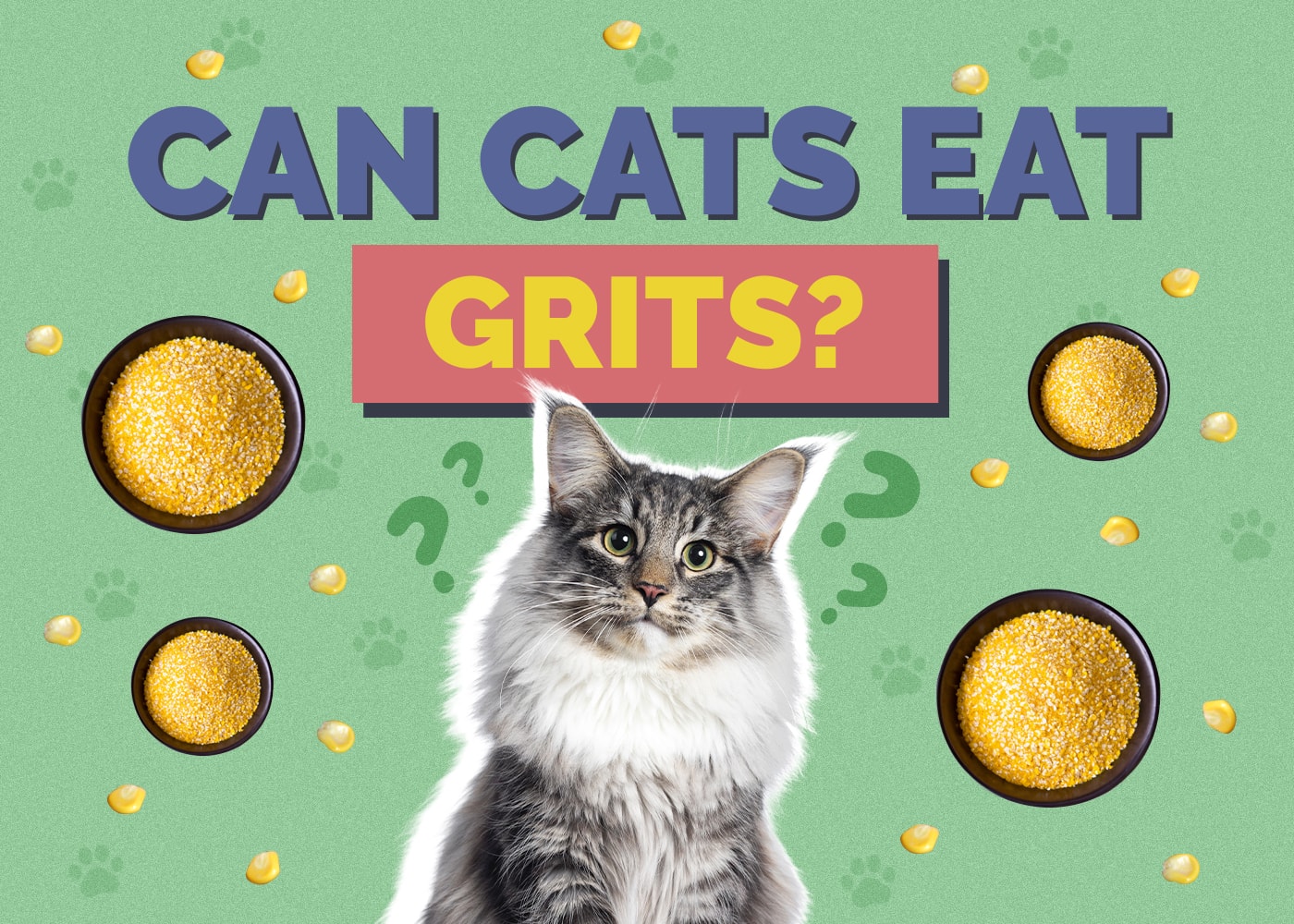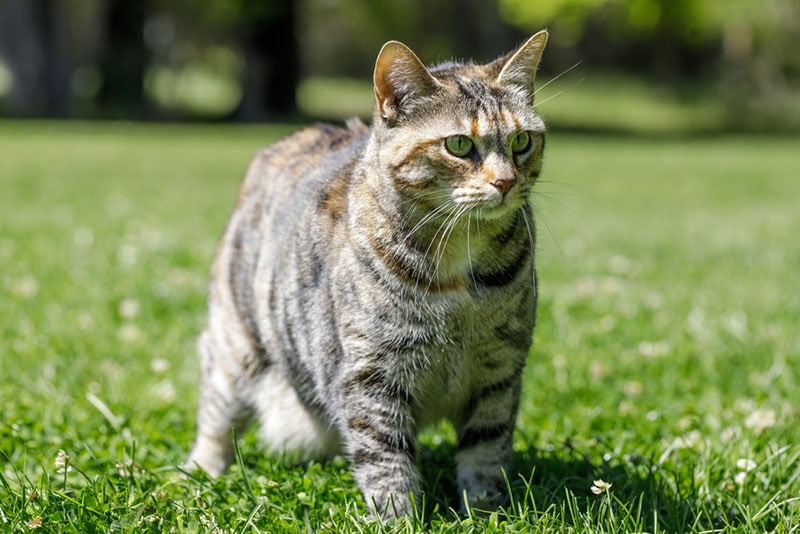What Should I Include in My Savannah Cat’s Diet? Vet-Approved Breed Care Tips & Facts
Updated on
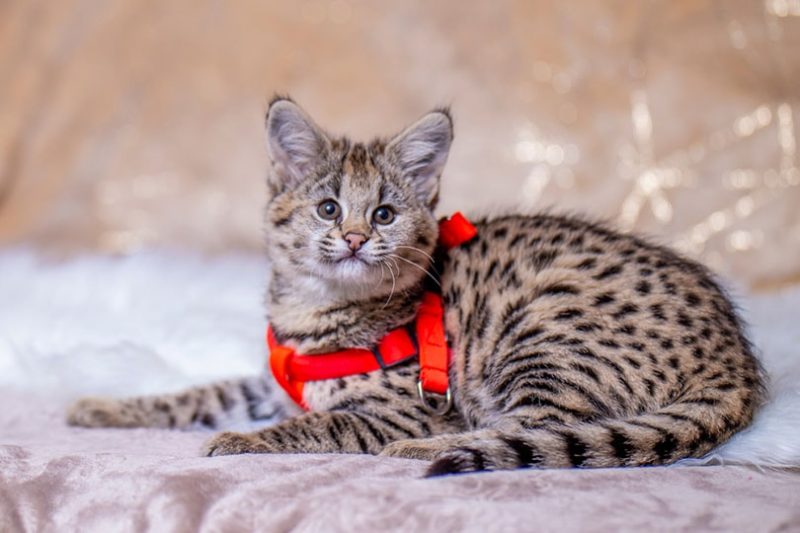
As cat parents, we all strive to keep our cats as happy and healthy as possible, which includes feeding them the best diet possible. Savannah cats are a very unique breed in that they are a hybrid between the wild African Serval and the domesticated cat.
Savannahs are separated by filial generation and these cats can have different percentages of Serval in their genetic makeup. It’s common for new Savannah cat owners to wonder if there is anything specific that should be included in their diet, possibly because they’re considering how close (if at all) they are to those wild roots.
In this article, we are going to talk more about the dietary needs of the Savannah cat and how to choose the right food for your beloved kitty.
Savannah Cat Dietary Needs
All cats are considered obligate carnivores, which means they need to have the overwhelming majority of their nutrition derived from other animals. Cats are stealthy hunters that evolved to consume whole prey, which means their natural diet consists of high amounts of animal protein, high amounts of animal fat, and minimal carbohydrates.
Indoor domesticated cats don’t hunt for prey, however they still require a diet that’s high in animal protein and fats, as there are many nutrients in these sources which are essential for cats and cannot be found in other food sources. Being a hybrid doesn’t mean that a Savannah cat needs any special dietary requirements or any additional supplements, but they are high energy and very active, so they need a diet that provides them well-balanced nourishment to suit their needs.
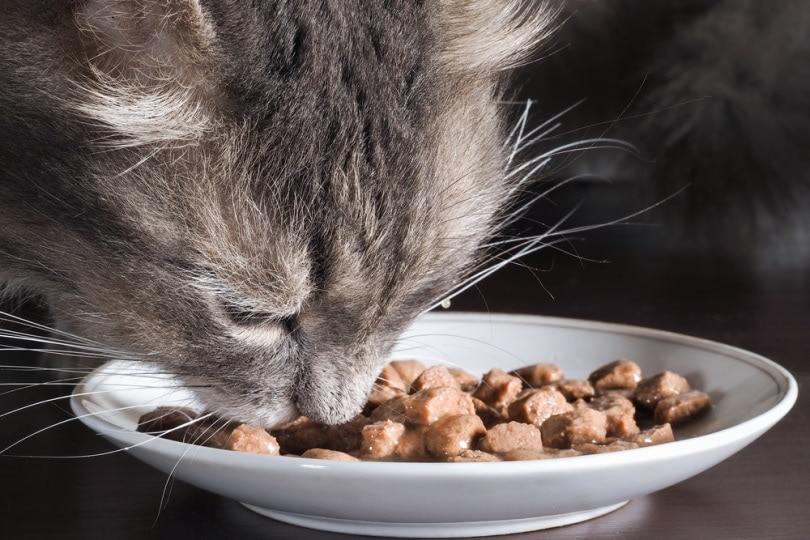
Key Components in a Savannah’s Diet
To best achieve your Savannah’s natural dietary needs, they will need high-quality cat food that contains an adequate amount of protein and fat with minimal carbohydrates. They also need a balance of vitamins and minerals in their diet. Pets often live longer than their wild counterparts and may also benefit from the inclusion of other helpful nutrients added to their diet which might not be available to their wild counterparts.
Protein
Protein is made up of amino acids. There are two separate kinds of amino acids—nonessential and essential. Nonessential amino acids are made within the body, while essential amino acids are not and must be consumed through the diet.
One of the most crucial essential amino acids for cats found in animal food sources is taurine. It is critical for healthy immunity, normal vision, digestive function, and heart muscle function, and maintaining normal pregnancy and fetal development. Cats deficient in taurine are at a greater risk of developing many health conditions.
Commercial cat foods use real meat, meat meals, and sometimes meat by-products. The protein sources used in cat’s food may include the following:
- Chicken
- Turkey
- Fish
- Beef
- Lamb
- Duck
- Quail
- Rabbit
- Venison
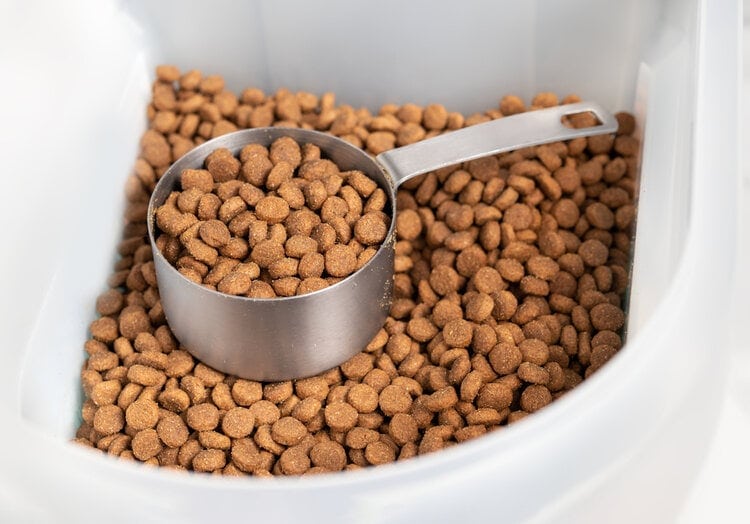
Water
Hydration is especially important in your cat’s diet. In the wild, cats get most of their hydration directly from their prey and drink fresh water to supplement. We must ensure our pet cats are getting the correct amount of moisture, as inadequate hydration can lead to urinary tract problems.
Canned and fresh food varieties are much higher in moisture content than traditional dry kibble, which means they allow your cat to get more hydration directly from their meal. Cats that eat only dry food will need a significant amount of water from other sources. Regardless of what kind of food you feed your cat though, they should always have access to fresh, clean water.
Fat
Fat in the diet will provide fuel for energy and is important for various bodily functions. The fatty acids aid in the health of the skin and coat. Fat also helps enhance the flavor of food. Meat-based diets will provide animal fat that supplies essential nutrients that are important for the overall health of your Savannah cat. Only a moderate among of fat is necessary for a cat to get everything they need nutritionally.
Contrary to popular belief, fat doesn’t make your cat gain weight. When fed in appropriate amounts, fat can be a very healthy addition to your cat’s diet. It’s especially important for cats because fat intrinsically contains a lot of water, which is formed from the normal metabolic processes that happen inside your cat’s body as they process the fat. In fact, fat contains more water than fat itself; 100 grams of fat contains approximately 107 grams of water. This explains why cats are successful in arid places in the wild; their prey can offer them a large amount of hydration due to their fat content.
Should I Add Any Supplements?
There’s no concrete reason to add any additional supplementation to your cat’s diet unless specifically advised by your veterinarian. There is such a thing as having too much of a good thing, and the same goes for vitamins, minerals, and nutrients. That being said, some additives and supplements may indeed benefit your pet when used properly. Always talk to your veterinarian if you have come across a supplement you feel would be beneficial for your Savannah cat.
Choosing the Right Food for Your Savannah Cat
Choosing the right cat food can pose a bit of a challenge for owners. Not only are there many options on the market nowadays, but as we learn more and more about our pet’s nutritional needs, we have to search for a food that is best for their health and longevity.
If you ever have questions about your Savannah’s diet, it’s best to talk to your veterinarian, as they are up to date on their individual health status and can provide important information and maybe even some recommendations. There are some tips on how to choose the right food for your Savannah cat if you are having trouble deciding though.

Balanced Nutrition is Key
Savannahs do not have any special dietary needs as a breed but because they are very active, they should be offered food that is particularly rich in animal protein. As mentioned above, you also want their food to provide a good balance of fat, and minimal carbohydrates, while including all the essential vitamins and minerals. Vegan and vegetarian options are not suitable for all cats, including Savannahs.
Consider Your Savannah Cat’s Unique Needs
Each cat is unique and while you may not have to feed a specialized diet, there are a few things you should consider when narrowing down your food choices, such as:
- Age: Nutritional requirements will change as your cat ages. Kittens need foods formulated to meet the requirements for proper growth and development. Adult cats tend to do well with foods designed specifically for adult maintenance. Senior cats may need food that is tailored to their specific health needs and a potential decrease in activity.
- Size: Savannah cats are among the tallest domesticated cat breeds in the world and some individuals can weigh up to 20 pounds or more. You will need to feed the appropriate proportions and your commercial cat food will come with feeding recommendations depending on size and weight. Foods will come in different bag sizes, can sizes, and so on. You want to pick something that won’t have you constantly ordering or running to the store for more.
- Health: Cats can suffer from a variety of health conditions and at some point in your Savannah’s life, they may require a more specialized diet depending on what kind of condition they have. This should only ever be done under the supervision of your veterinarian.
- Preference: Cats can be very picky and though Savannah cats have more dog-like personalities, you may notice they have a certain preference over the type of food they get or even the protein sources in the food. This may require some trial and error at first.
Wet Food, Dry Food, or Both?
There are different types of cat food on the market including dry kibble, canned foods of various textures, fresh foods, and some freeze-dried kibbles. Dry kibble is the most economical and convenient choice because it is less expensive and has a longer shelf life. Not only that, but it is easy to store, and creates less mess. The downside is that dry kibble contains higher amounts of carbohydrates and minimal moisture.
Canned wet food is a very popular choice because it contains high amounts of moisture, is rich in protein, and is lower in carbohydrates. It can also have a longer shelf life if left unopened but will need to be used quickly once you pop the seal. Canned food comes in many varieties like pate, shreds, and more. It is messier but it’s great for picky eaters since it has a stronger aroma and is more enticing overall.
Fresh food is growing very popular as pet owners seek to feed the most premium quality diets. Fresh food is often the best quality, as most of these foods use fresh ingredients meant for human consumption. This does come at a much higher cost than both kibble and canned food.
To make sure your cat gets a well-rounded diet while offsetting costs and adding convenience, some owners choose to offer a combination of dry and either fresh or canned foods. You just need to be mindful of the recommended quantities and always transition slowly if changes are being made to the diet.
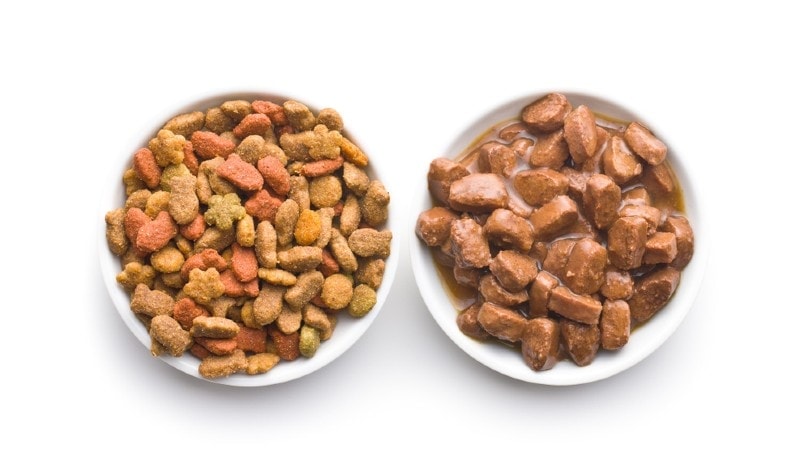
Grain Free Vs. Grain Inclusive
As obligate carnivores, a cat’s system is not well optimized to digest high amounts of carbohydrates, which is why it is recommended they be fed diets that are low in carbs. A cat’s food doesn’t have to be grain free unless otherwise suggested by your veterinarian, but you will notice that many premium cat foods on the market are grain-free.
The ongoing investigation into grain-free diets and pet health is related only to dogs and the potential link to canine dilated cardiomyopathy. It is important to note that this is not a concern regarding cats.
Keep Quality in Mind
You want to feed your Savannah a well-balanced, high-quality diet, which is why it is important to become familiar with reading food labels and understanding ingredients. This will allow you to make the most well-informed decision regarding your cat’s nutrition.
Top-quality foods will contain real meat from animal protein sources as top ingredients. It’s a good idea to avoid unnecessary fillers, by-products, artificial colors, flavors, and preservatives if at all possible.
Top-quality foods will contain real meat from animal protein sources as top ingredients. It’s a good idea to avoid unnecessary fillers, by-products, artificial colors, flavors, and preservatives if at all possible. You also probably want to steer clear of excessive carbohydrates.
Check the food label to see if the food meets the AAFCO nutritional guidelines for your cat’s needs (within the US). Elsewhere, you should look for the relevant certification pertaining to your geographical location. Be sure to research potential brands’ reputations, where they source their ingredients, and if they perform any quality testing, and safety measures that go into the manufacturing of the food.
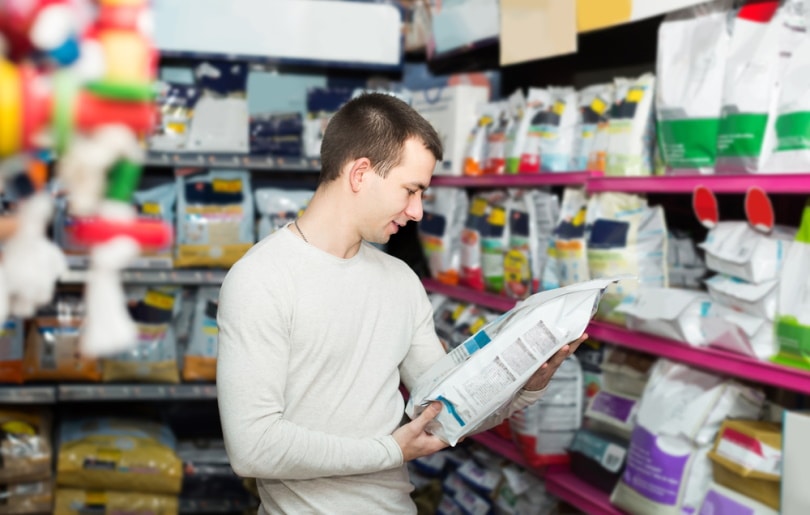
In Conclusion
Savannah cats do not have any special dietary needs as a breed and should be fed high-quality, well-balanced cat food that is rich in animal protein and fat, and ideally low in carbohydrates. Proper nutrition is key to a long and healthy life, so make sure to choose your cat’s food carefully and involve your veterinarian if you ever have any questions.
Featured Image Credit: Kolomenskaya Kseniya, Shutterstock

